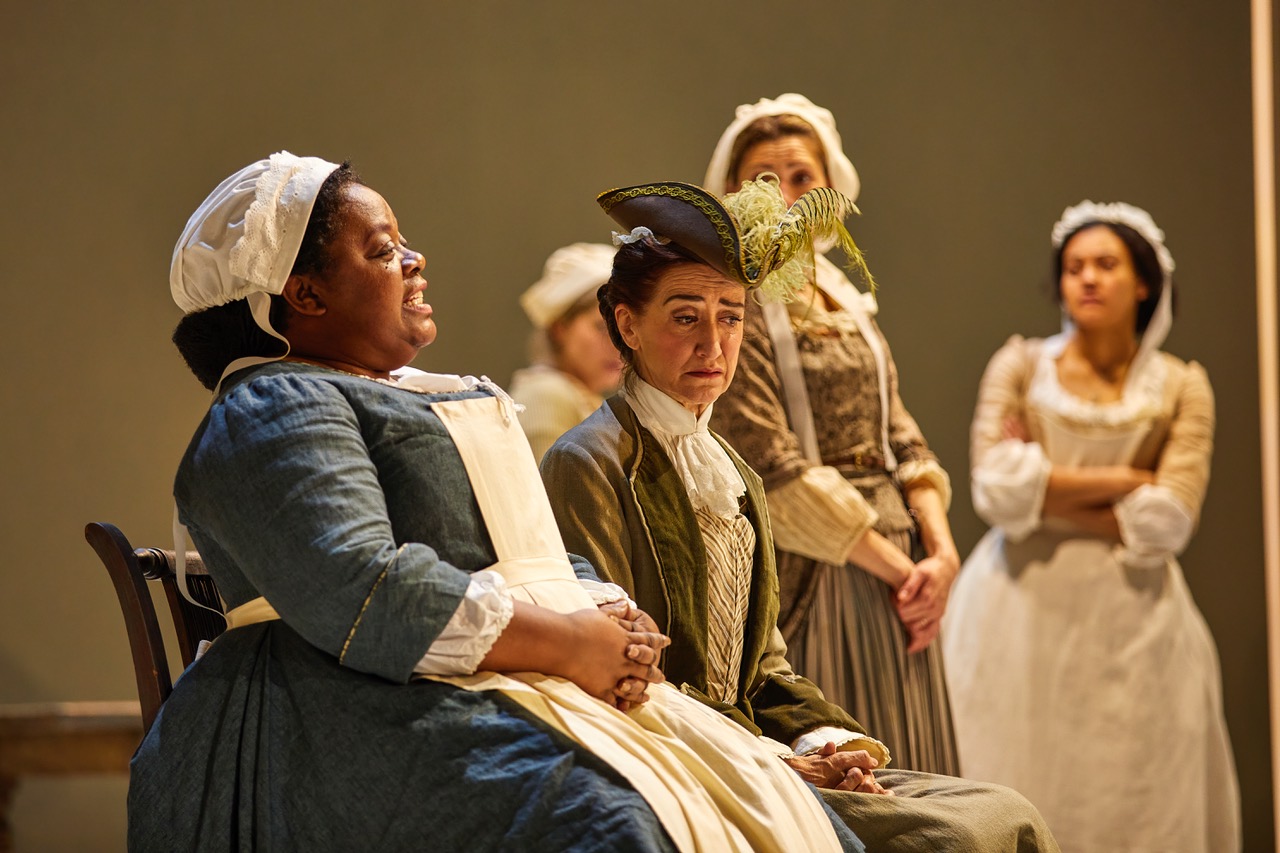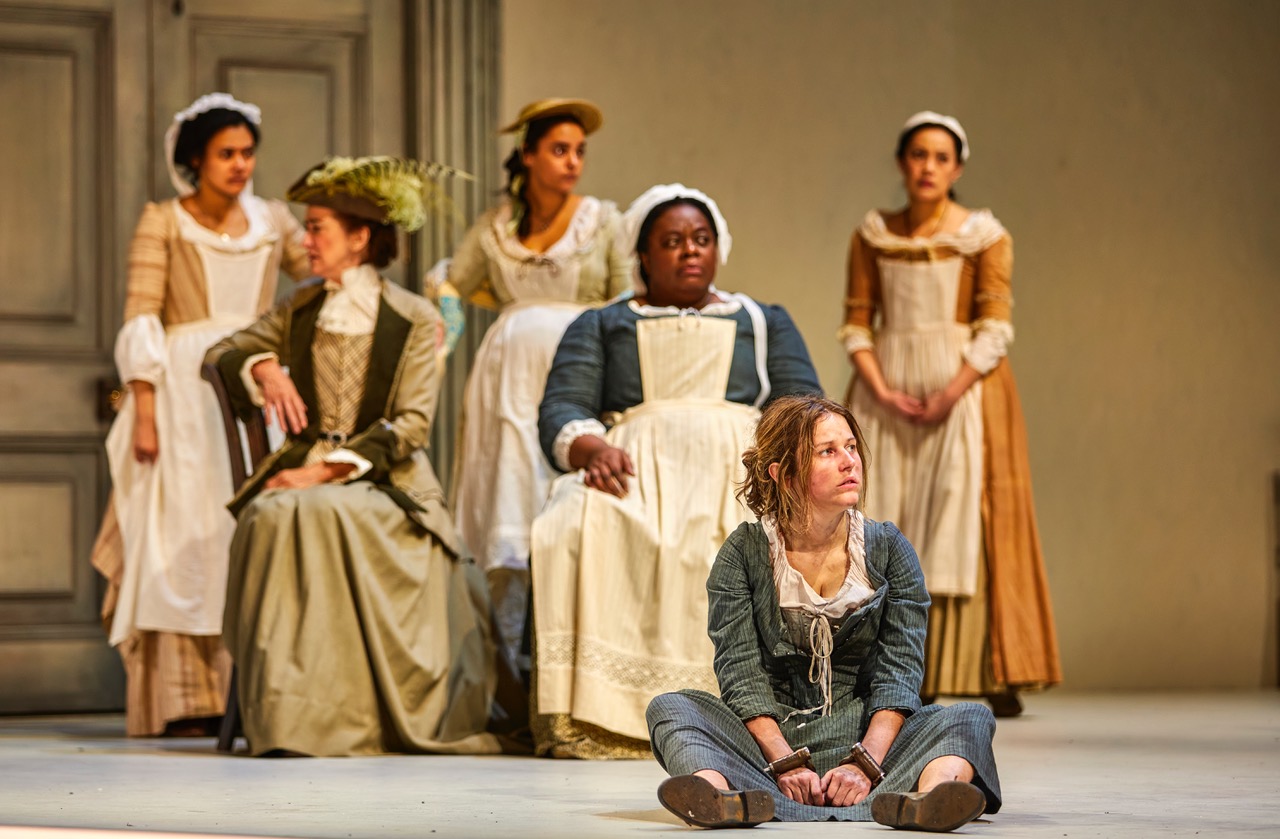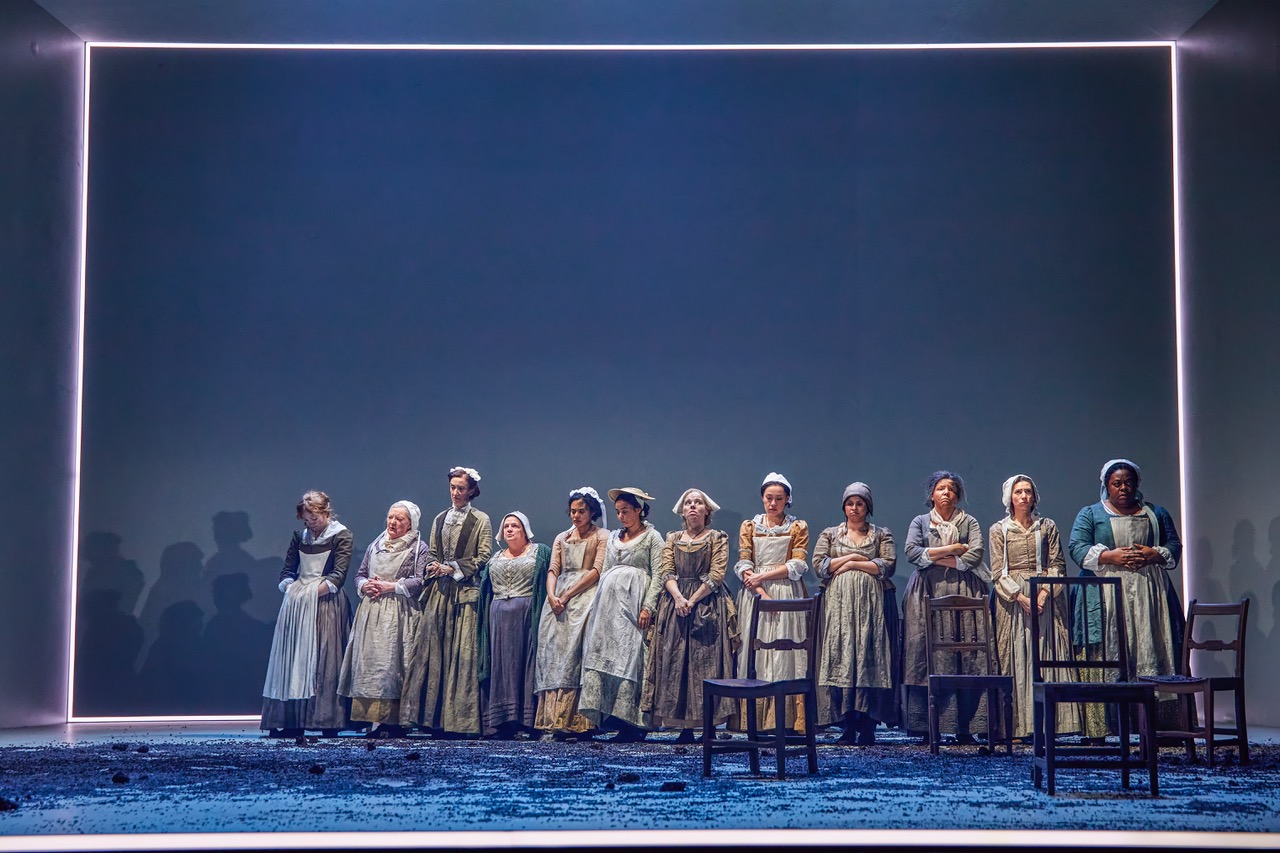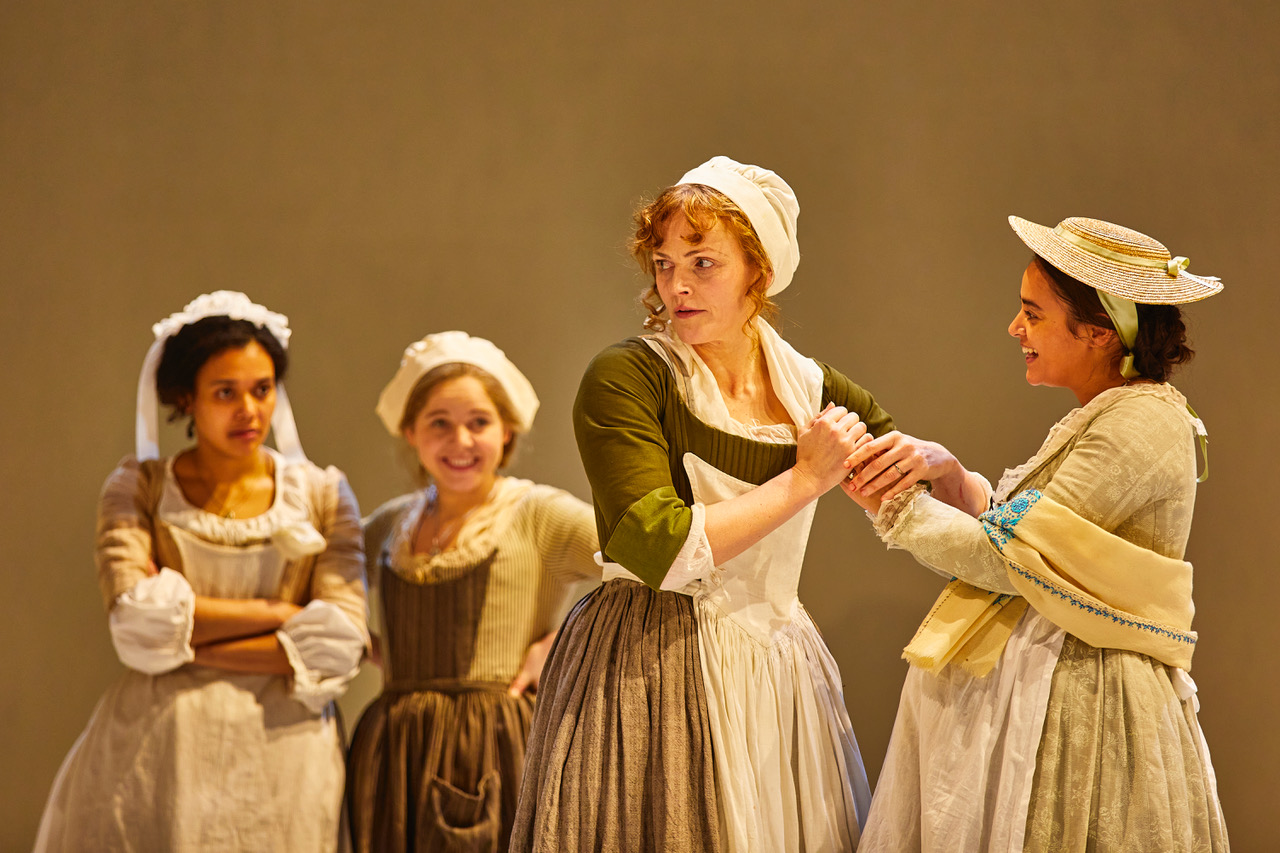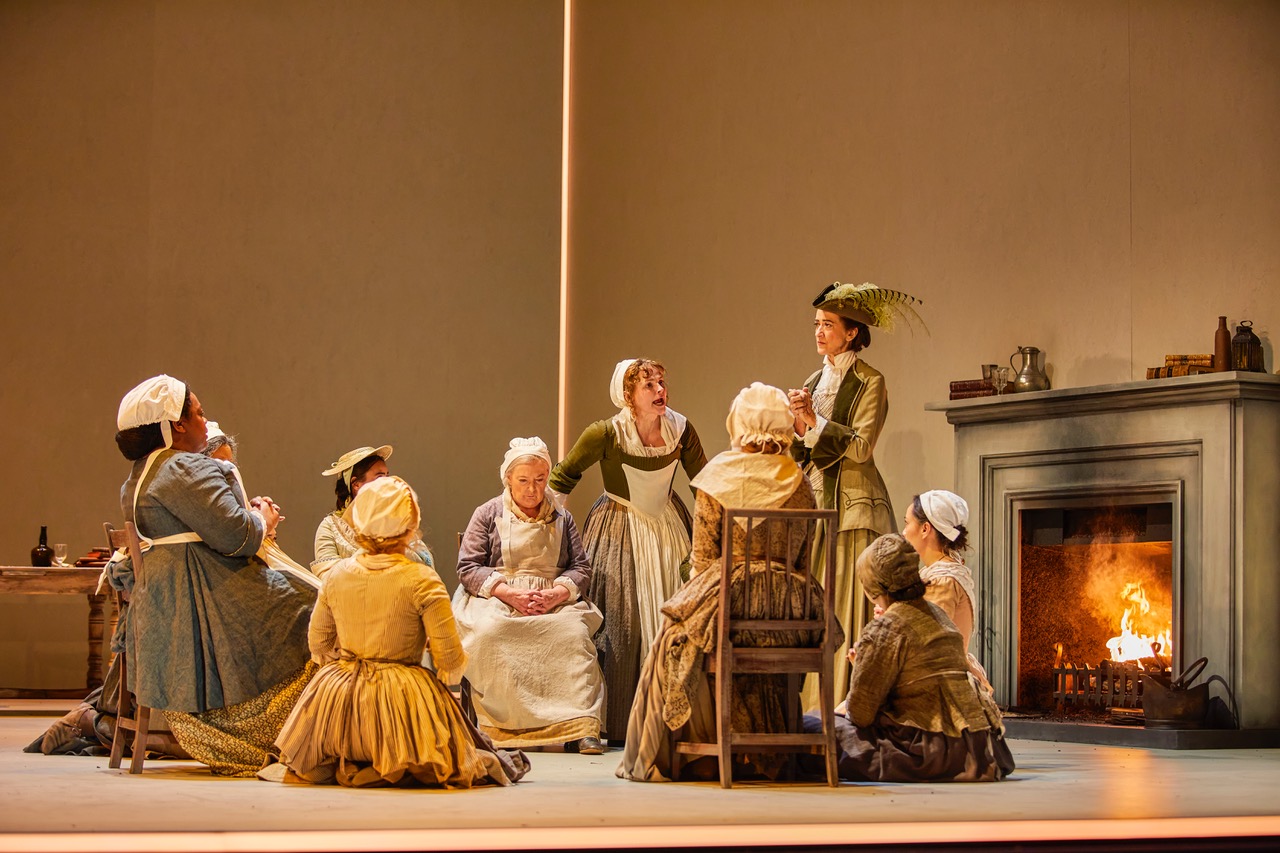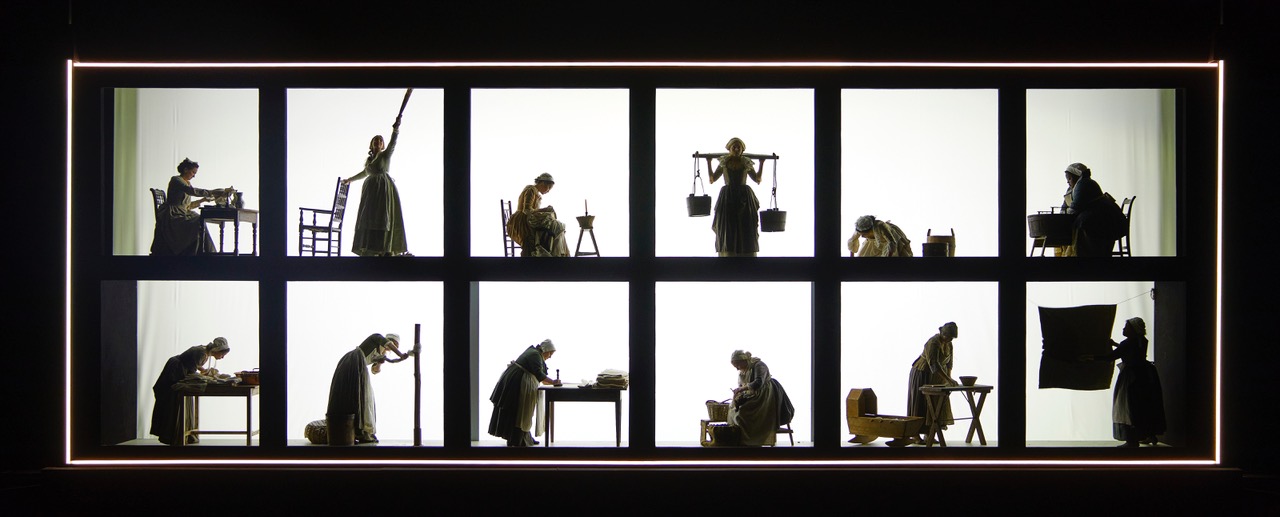For anyone thinking that women being outspoken and defiant is something of a new phenomenon will be taken aback by Lucy Kirkwood’s new play, The Welkin.
The ballsy play opens up with a two-tier storyboard. Each frame contains a woman carrying out her household chores under a bright- almost white- lighting state. Women framed in their rightful place, so to speak, as if it is meant to remain for as long as eternity. Alongside this vivid image is a rhythmic, increasingly erratic sound effect bridging the short opening scene to the next. By the time the soundscape reached its crescendo the audience is fully aware that these women’s daily routine was about to be disrupted.
However, seeing 13 gutsy women dominate the vast Lyttleton stage of The National Theatre is a memorable delightful sight.
Twelve women will be called away from their household duties to be jurors. It’s worth saying that the only way women participated as a juror in the 18th century was to determine whether a woman is pregnant or not prior to being executed. They have been granted authority to decide the fate of another woman caught in the criminal justice system. Given that there has always been a cry for sisterhood and solidarity amongst women, one might think that a decision would be made relatively quickly, and therefore shortening the advertised running time of the play. I guess when such a rare privilege of power has been given to women during that time, it is best for them to try and milk it for as long as they can.
The major part of the play unfolds in a rather long-winded, but highly entertaining scene where the accused, Sally Poppy (Ria Zmitrovicz), is brought into the large spacious grey room to have her fate decided by the women. She is interrogated about her symptoms, poked and literally milked to cringing effects before our very eyes. As the women are unable to reach a unanimous decision, the scene spiralled into something like a continuous thread on a Reddit post about pregnancy and motherhood. Trust me, it is very interesting hearing the women chime in with their various experiences and old wives tales, although modern to them as the play is set in 1767. The scene is full of crude humour and charm as well as tensions as the women wrestle with morality and rebuff each other’s experience of womanhood. They are far from being unified and my outing to the theatre felt quite long.
However, seeing 13 gutsy women dominate the vast Lyttleton stage of The National Theatre is a memorable delightful sight. Although I found the accent and dialect hard to follow, I was still able to fully absorb the vibe and coarse spirit of the characters. In fact, I felt very fulfilled by the level of feminine energy and humour on stage and didn’t mind not understanding everything that was said.
Ria Zmitrovicz gives a feisty performance as the unremorseful accused. She delivers her lines in many degrees of rage with admirable vulgarity. Likewise, the rest of the cast’s bold performances set the record straight in regard to women going against patriarchal society. It is not a new phenomenon, but rather an ongoing battle which began way before our time.
Kirkwood’s writing shatters misconceptions about women in history living timid lives. It is clear to see that she has a remarkable ability to connect with the lamentable human condition. This play questions women’s loyalty to one another- 12 women couldn’t agree in spite of stark evidence over Sally’s claim of being with child, and the betrayal of inviting a male doctor to examine her using a speculum cuts really deep.
It is clear to see that Lucy Kirkwood has a remarkable ability to connect with the lamentable human condition.
The lighting design also captures the splitting nature of humanity. In the first half the lighting state noticeably alternates between bright and dark, perhaps to symbolise the two polar ends at which the jurors stand regarding the dilemma they’re facing. The lighting blends into a golden hue as the jurors shift away from a black and white state of mind.
I found watching The Welkin a humbling experience because it presents a wide spectrum of women passing through generations. That alone absolutely justifies the running time and is definitely worth seeing.

























